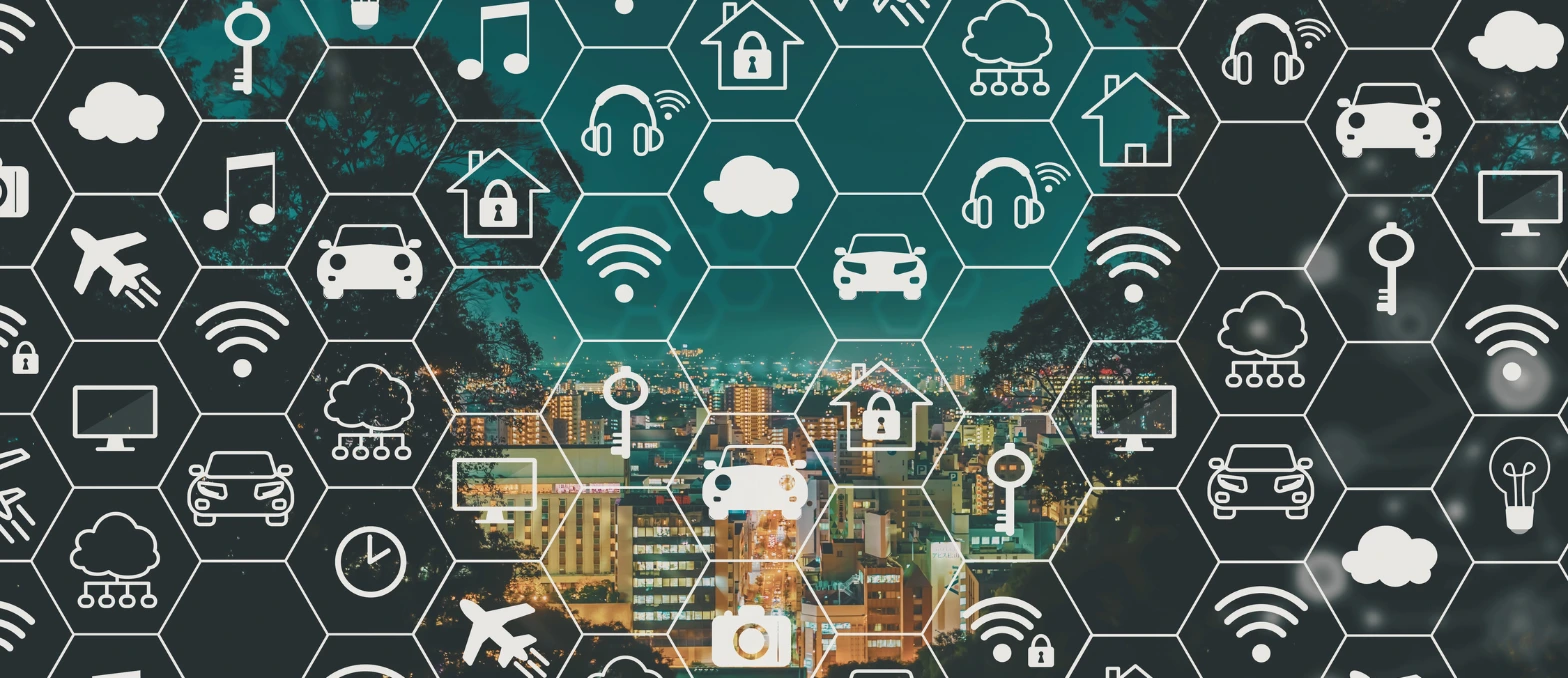Chatbot development has arisen as a deeply effective device for organizations hoping to streamline their operations and further develop client care. Furthermore, with advancements in artificial intelligence and normal language handling, chatbots have become progressively complex, empowering them to automate operations and handle client requests easily. This has brought about critical time investment funds for organizations across different ventures.
According to the latest data and stats for 2024, the adoption of chatbot development is on the rise, with more businesses recognizing the benefits it brings. Overall, a report by Grand View Research predicts that the global chatbot market size will reach $1.25 billion by 2025, growing at a CAGR of 24.3% from 2019 to 2025.
Introduction
In the current fast-paced business world, automation is turning into a fundamental device for organizations hoping to further develop effectiveness and save time. Furthermore, one area where automation is taking huge measures is chatbot advancement.
Chatbots are artificial intelligence-fueled virtual assistants that take part in discussions with clients or employees and assist organizations with streamlining activities and enhancing client assistance.
As per the most recent data and insights predicted for 2024, the chatbot market will arrive at a worth of $1.25 billion. Overall, this development is ascribed to the rising interest in automated customer service solutions and the requirement for organizations to work on their advanced presence.
One of the preliminary benefits of chatbot development for organizations is the capacity to automate tedious tasks. Chatbots can deal with normal client requests, for example, item data or request tracking, without the requirement for human intervention.
This not only saves time for employees to focus on additional complex operations but also guarantees that clients get the immediate and exact responses they expect.
Moreover, chatbots can give 24/7 client assistance, permitting organizations to take special care of the requirements of their clients at any time of the day. This nonstop availability further develops consumer loyalty and devotion, as clients can get quick help at whatever point they require it, no matter what the time.

What Is A Chatbot?
A chatbot is a computer program or an artificial intelligence service that can recreate human conversation through text or speech. It connects with people in a natural language format, like how we speak with one another. Overall, the reason for a chatbot is to understand and answer client requests or demands, give data, help, or perform specific operations.
In more specific terms, consider a chatbot as a virtual assistant that you can converse with and ask critical questions. Furthermore, it utilizes artificial intelligence to hold your questions and give appropriate responses or solutions.
It can assist with things like tracking down data, making reservations, or in any event, ordering products. Overall, the objective of a chatbot is to make communications with organizations more helpful and proficient via robotizing certain operations and offering moment help.
Chatbot development offers various advantages for organizations, including
- boosted efficacy and further developed client support.
- Via automating tedious operations, chatbots free up employees to focus on the additional complex and counted activities. This improves efficiency as well as guarantees that clients get speedy and exact responses to their requests.
How Do Chatbots Work?
Chatbots are automated PC programs that associate with clients. Overall, they reproduce human conversations and help clients in different operations or share data. This is the way chatbots work:
1. User Input:
The collaboration starts when a client communicates something specific or poses an inquiry to the chatbot. This is possible through a site, reporting application, and another stage where the chatbot is coordinated.
2. Natural Language Processing:
The chatbot uses Natural Language Processing (NLP) to understand the client’s response and their queries. Overall, NLP helps the AI chatbots investigate and interpret the text or speech, distinguishing the aim and releasing applicable data.
3. Database or AI Algorithm:
Once the chatbot understands the client’s feedback, it gets to a data set or artificial intelligence algorithm to track down the suitable response or activity. This data set contains data that the chatbot is prepared on, for example, item details, FAQs, or client data.
4. Generating a Response:
Given the client’s feedback and the data in the data set, the chatbot creates a reaction. It can give replies to questions, give proposals, or perform explicit tasks like putting in a request.
5. Sending the Response:
The chatbot then sends the created reaction back to the client, either as an instant message or through discourse. This permits the client to get the data or help they were looking for.
6. Nonstop Learning:
Chatbots can likewise gain from every association, working on their understanding and reactions after some time. They can examine client criticism and update their data set or artificial intelligence algorithm to give more exact and applicable data later on.
Generally speaking, chatbots work by breaking down client input, grasping the goal behind it, getting relevant data from a database or artificial intelligence algorithm, producing a response, and sending it back to the client.
Furthermore, they ceaselessly learn and work on their responses through client criticism, making them more productive and powerful in helping.
Deliver Great Business Results & Drive Conversions With Chatbot Development
The Current Scenario Of The Chatbot AI Market
The chatbot AI solution providers market has encountered huge development throughout recent years, and as we enter 2024, it will be a flourishing industry. Overall, chatbots have turned into an indispensable piece of business systems across different areas, driving mechanization and saving important time for the two organizations and clients.
According to recent research reports by MarketsandMarkets, The market for chatbot market size will reach USD 15.5 billion by 2028, at a CAGR of 23.3% during the forecast period.
The chatbot market sellers have managed different sorts of natural and inorganic development systems, for example, new product dispatches, product redesigns, organizations and appointments, business extensions, and consolidations and assets to reinforce their contributions to the market growth.
Furthermore, in the most recent scenario of the top artificial intelligence companies market, there is a developing spotlight on improving chatbot capabilities to give more customized encounters for clients. Chatbots are improved with cutting-edge AI algorithms and Natural Language Processing strategies that are more likely to grasp client inclinations and settings.
Moreover, there is a rising trend of incorporating chatbots with different technologies, for example, voice assistants and Virtual reality, further upgrading the client experience. Organizations are progressively utilizing chatbots to streamline their activities, mechanize redundant tasks, and further develop client assistance.
As far as industry verticals, areas like medical services, online business, banking, and retail are driving the reception of chatbot development companies. Medical care associations are utilizing chatbots to give instant clinical consultants and timetable appointments, while online business organizations are involving them for customized entity suggestions and requests.
Besides, advancements in chatbot development platforms and devices are engaging organizations to effortlessly make and convey chatbots without broad coding data. This openness is driving the expansion of chatbots across different enterprises.
Overall, the future of the chatbot market looks promising with continued growth expected in the coming years. Overall, as organizations keep on focusing on automation, effectiveness, and customized client encounters, chatbots will play a significant part in satisfying these needs.
The Rising Importance Of Chatbot Development In Business Growth
Chatbot development has become an increasingly important part of business growth in today’s digital age. As technology continues to progress, businesses are finding innovative ways to streamline their operations and improve customer experience. Overall, one such way is through the implementation of chatbots. These conversational tools have proven to be incredibly beneficial for businesses across various industries.
Let’s explore the key benefits of chatbot development for business growth.
24/7 Availability:
Chatbots can be accessible round the clock, giving instant responses and support to clients. This guarantees that organizations never pass up possible leads or client requests, leading to expanded consumer loyalty and reliability.
Cost Savings:
Chatbots can essentially diminish costs for organizations via mechanizing boring operations and decreasing the requirement for HR. They can deal with various client inquiries all the while, taking out the requirement for employing extra client service staff. This outcome in savings for organizations, permitting them to assign assets to different areas of development.
Improved Efficiency:
Chatbots and chatbot development companies are deeply productive in dealing with client requests and giving fast reactions. They can analyze and handle a lot of data progressively, empowering organizations to determine client issues immediately. This effectiveness provokes further developed efficiency and smoothed-out activities.
4. Personalization:
Chatbots are modified to customize discussions with clients by catching client inclinations and past communications. This considers a more custom-made and customized client experience, expanding consumer loyalty and dependability.
5. Improved Client care:
Chatbots can give moment replies to normal client inquiries, offering brief help and lessening the hanging tight time for clients. They can likewise help with directing clients through complex cycles or investigating issues, further developing client assistance and fulfillment.
6. Expanded Lead Generation:
Chatbots can draw in likely clients, assemble data, and qualify leads. By giving customized proposals or addressing requests, chatbots can direct clients through the deals channel, prompting expanded lead age and transformations.
7. Data Collection and Analysis:
Chatbots can gather significant data about client inclinations, ways of behaving, and buying history. This data is investigated to acquire insights about client requirements, inclinations, and patterns. This data is then used to drive business techniques, further develop items or services, and upgrade general client experience.
8. Versatility:
Chatbots can deal with a huge volume of client connections at the same time with next to no restrictions. As organizations develop and extend, AI chatbots, it can undoubtedly increase to oblige expanding client requests, guaranteeing continuous help and consumer loyalty.
Resolve Your Customer’s Query Efficiently With Our Chatbot Development Services
Importance Of Chatbot Development In Business Growth
In the present quick-moving computerized time, organizations are continually searching for ways of streamlining their activities and driving digitization. One such solution that has built up some decent forward movement is chatbot advancement.
Chatbots are PC programs that mimic human discussion through text or voice communications. They have turned into a fundamental piece of business methodologies, offering various advantages that add to generally speaking development and achievement.
The following are eight justifications for why chatbot advancement is turning out to be progressively significant for business development:
1. Upgraded Client care:
Chatbots give moment reactions and every minute of everyday support, further developing consumer loyalty levels. They can deal with an enormous volume of requests all the while, diminishing stand-by times and guaranteeing brief help.
2. Cost Savings:
Via robotizing tedious assignments, organizations can fundamentally diminish functional expenses related to client care and administration. Chatbots can deal with a high volume of requests without the requirement for extra staff, setting aside both time and cash.
3. Further developed Efficiency:
Chatbots streamline business activities via mechanizing dreary and ordinary undertakings. They can deal with normal client requests, give item proposals, and even cycle orders, opening up human specialists to zero in on additional perplexing tasks.
4. Customized Experiences:
With progressions in AI models and normal language handling, chatbots can all the more likely figure out client inclinations and settings. This authorizes them to give customized encounters by proposing custom-made suggestions, ideas, and formats.
5. Increased Sales and Revenue:
Chatbots are customized to sell and strategically pitch products or services in light of client cooperation. By giving important suggestions and data, they can assist with driving deals and at last increment income for the business.
6. Data Collection and Analysis:
Chatbots can gather important client data and insights during collaborations. This data is utilized to analyze client conduct, inclinations, and trends, empowering organizations to pursue informed choices and further develop their promoting techniques.
7. Scalability:
Chatbot development services deal with various discussions all the while without getting overwhelmed or exhausted. This makes them exceptionally adaptable, permitting organizations to proficiently deal with extended client requests and collaborations as their client base develops.
8. Competitive Advantage:
As chatbots become more dominant across ventures, organizations that take on chatbot technology gain a strategic advantage. They can give a consistent and professional client experience, drawing in and holding clients who esteem comfort and customized services.
Use Cases Of Chatbots In Business
Chatbots have turned into a basic tool in the business world, empowering organizations to automate tasks and save important time. These artificial intelligence-controlled virtual assistants can deal with different client connections and streamline interior processes. We should investigate the six most recent use cases of chatbots in business:
1. Customer Support:
Chatbots are generally utilized for giving client assistance. They can respond regularly get clarification on FAQs, troubleshoot issues, and guide clients through different processes. This lessens the responsibility in client care groups and guarantees that clients get speedy and precise help.
2. Sales and Lead Generation:
Chatbots can draw in possible clients, accumulate data about their inclinations and needs, and suggest appropriate items or administrations. They can likewise qualify leads by posing important inquiries and giving customized proposals, at last expanding deal transformations.
3. Appointment Scheduling:
Chatbots can help with planning appointments for organizations. They can cooperate with clients, actually look at accessibility, and book arrangements straightforwardly into the organization’s schedule framework. This eliminates the requirement for manual appointment booking and lessens the risk of human mistakes.
4. Order Tracking:
Chatbots can give continuous updates on request status and transportation data. Clients can essentially get some data about their request, and it will recover the vital data from the organization’s data set and give precise and ideal updates. This further develops transparency and diminishes the requirement for clients to contact client assistance for requests.
5. Feedback Collection:
Chatbots are programmed to gather input from clients after a purchase or interaction. They can pose direct inquiries about the client’s insight, fulfillment level, or ideas for development. This permits organizations to accumulate significant experience transparency from their clients, assisting them with understanding client needs and inclinations better.
6. Employee Onboarding and Training:
Chatbots can aid the onboarding system for new representatives by giving significant data, responding to normal inquiries, and directing them through organizational approaches and methodology.
They likewise are utilized for the end goal of preparing, and giving intuitive and customized preparing modules to representatives.
Chatbots offer various advantages for organizations across different businesses. From giving moment client assistance to further developing deal changes, streamlining appointment booking, and working with demand following, AI chatbot development services are reforming how organizations communicate with their clients.
Moreover, they can gather important data for analysis, upgrade generally speaking client experience, and aid worker onboarding and preparing. By utilizing the power of chatbot technology, organizations can drive automation, save time, and remain ahead in the present quick-advancing business environment.

Leverage The Latest Technologies For Chatbot Development
Utilizing the most recent advances for chatbot development can altogether drive mechanization and save time for organizations. It is accomplished through the use of machine learning solutions (ML), Natural Language Processing (NLP), and other cutting-edge methods.
How about we dive into these advancements independently to understand their significance in chatbot development:
-
Machine Learning (ML):
-ML empowers chatbots to gain from data and work on their presentation over the long haul. It permits chatbots to examine designs, make expectations, and adjust their reactions in light of client associations.
– By utilizing ML, chatbots can grasp opinions, and aim at client questions. This empowers them to give more precise and customized reactions, upgrading the general client experience.
– ML algorithms additionally empower chatbots to ceaselessly gain from new data and change their reactions as needed. This assures that chatbots stay up-to-date and can deal with an extensive variety of client queries successfully.
2. Natural Language Processing (NLP):
– NLP is a part of artificial intelligence that highlights the connection between computers and human language. It permits chatbots to understand and interpret human language, including slang, expressions, and complex sentence structures.
– With NLP, chatbots can perform operations like language interpretation, sentiment analysis, and entity recognition. This permits them to understand client inquiries all the more precisely and give applicable reactions.
– NLP additionally empowers chatbots to create normal and human-like discussions. They can grasp the context of a discussion, keep up with continuity, and take part in significant interactions with clients.
3. Speech Recognition:
– Speech recognition technology permits chatbots to change communicated language into written text. This empowers clients to associate with chatbots through voice orders, making it more advantageous and open.
– By integrating speech recognition into chatbot development, organizations can take special care of a more extensive crowd, incorporating those with inabilities or the individuals who lean toward voice communications over composing.
– Speech recognition technology likewise upgrades the client experience by giving a consistent discussion with the chatbot. Clients can just speak their questions or orders, and the chatbot will understand and answer appropriately.
4. Sentiment Analysis:
– Sentiment Analysis is a technique that decides the thought or feeling behind the text. By incorporating sentiment analysis with chatbot technology, organizations can measure consumer loyalty, differentiate between predicted issues or grievances, and give appropriate reactions.
– Chatbots with sentiment analysis abilities can understand and answer the feelings communicated by clients. This permits them to give sympathetic and customized reactions, improving the general client experience.
– Sentiment analysis can likewise help organizations with differentiating trends and examples in client criticism, permitting them to seek informed choices and work on their items or services appropriately.
These technologies empower chatbots to gain data, understand and decipher human language, convert discourse into messages, and investigate the feelings behind client questions.
By using these state-of-the-art strategies, chatbots can give more exact and customized reactions, participate in normal discussions with clients, take care of a more extensive crowd through voice connections, and measure consumer loyalty.
Also Read: The Challenges To Chatbot Development
Future Scope Of Chatbot Development
Chatbot development has acquired colossal fame lately, changing how organizations associate with their clients. As technology advances, the extent of chatbot development is supposed to extend dramatically, offering many open doors for organizations.
One of the key viewpoints that will drive the future extent of chatbot development is further developing client experience. Chatbots are turning out to be progressively modern and can understand and answer client questions all the more specifically, giving customized and significant data. This elevated client experience will lead to expanded consumer loyalty and dependability.
Moreover, chatbots are playing a critical part in the digitization of different business processes. By incorporating chatbots into existing frameworks, organizations can streamline work processes, diminish manual tasks, and save time and resources.
Chatbots can deal with routine requests, offer self-support choices for clients, and help with essential assignments, opening up HR to focus on additional complicated and vital exercises.
Furthermore, various more innovative technologies will be added at some point in the scope of chatbot development. For example, chatbots are paired with augmented reality (AR) or virtual reality (VR) platforms to offer users rich and intelligent experiences. It’s useful for undertakings like gaming, e-commerce, and entertainment.
Regarding market development, the chatbot market is observing a huge extension.
According to a report by Grand View Research, the global chatbot market size was valued at USD 1.23 billion in 2020 and is projected to reach USD 10.08 billion by 2027, growing at a CAGR of 30.9% during the forecast period. The rising reception of chatbot technology across different businesses, like medical care, banking, retail, and travel, is driving this development.
Gear Up Your Business By Hiring a Chatbot Development Company
To Conclude
Overall, chatbot development is an important device for driving digitization and saving time in a business environment. Chatbots can deal with repetitious operations, answer client requests, and offer help 24/7 without human mediation. Via robotizing these cycles, organizations can free their workers’ chance to focus on additional key and important tasks.
Besides, hiring chatbot developers offers the benefit of adaptability. They can deal with different discussions at the same time, permitting organizations to give quick and productive client support. This versatility likewise implies that chatbots can deal with high volumes of requests without the requirement for extra work supply.
Also, chatbots can be modified to fit explicit business needs. They can be modified to understand and answer industry-explicit wording and give customized suggestions given client inclinations.
This degree of customization with a mobile app development company in the USA improves the general client experience, prompting higher consumer loyalty and faithfulness.
Moreover, chatbots can get significant data and insights about clients’ inclinations, ways of behaving, and problem areas. This data can be utilized by organizations to additionally work on their items and management, upgrade their showcasing techniques, and go with more informed business choices.
FAQ
1. What is chatbot development for business?
Chatbot development for business includes making artificial intelligence-controlled personal assistants that can cooperate with clients and automate different operations, like noting questions, giving data, and completing trades.
2. How can chatbots drive automation in business?
Chatbots can streamline tedious tasks like client assistance, appointment booking, and request handling. Via robotizing these tasks, organizations can save time and designate assets all the more effectively.
3. What are the benefits of using chatbots in business?
Using chatbots in business can further develop client service, increment proficiency, reduce response times, give customized communications, and boost general client experience.
4. Can chatbots be customized to suit specific business needs?
Yes, chatbots can be customized to suit specific business needs by tailoring the responses, observing, and client experience to line up with the organization’s new requirements.
5. What platforms can chatbots be deployed on?
Chatbots can be deployed on different platforms, for example, sites, mobile applications, social media applications (like Facebook Messenger or WhatsApp), and voice assistants (like Amazon Alexa or Google Assistant).
6. How do chatbots learn and improve over time?
Chatbots learn and work over a long span through AI algorithms and Natural Language Processing. They examine client associations, collect data, and change their responses given standards and criticism.
7. Can chatbots handle complex customer queries?
Yes, high-level chatbots can deal with difficult client questions by using natural language processing capacities and getting to an enormous data set to give exact and important responses.
8. Are chatbots cost-effective for businesses?
Yes, chatbots can be financially smart for organizations. They require open experience for development however can altogether lessen the requirement for HR in operations like client assistance, bringing about long-haul savings.












